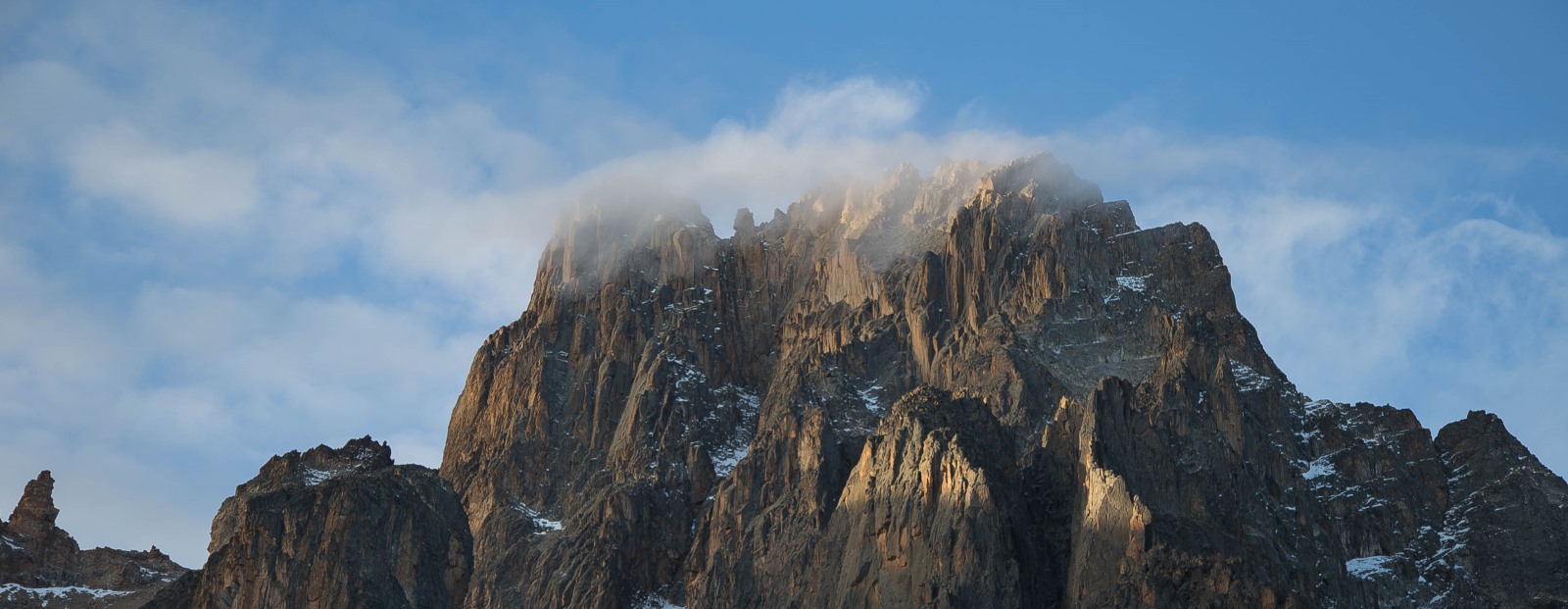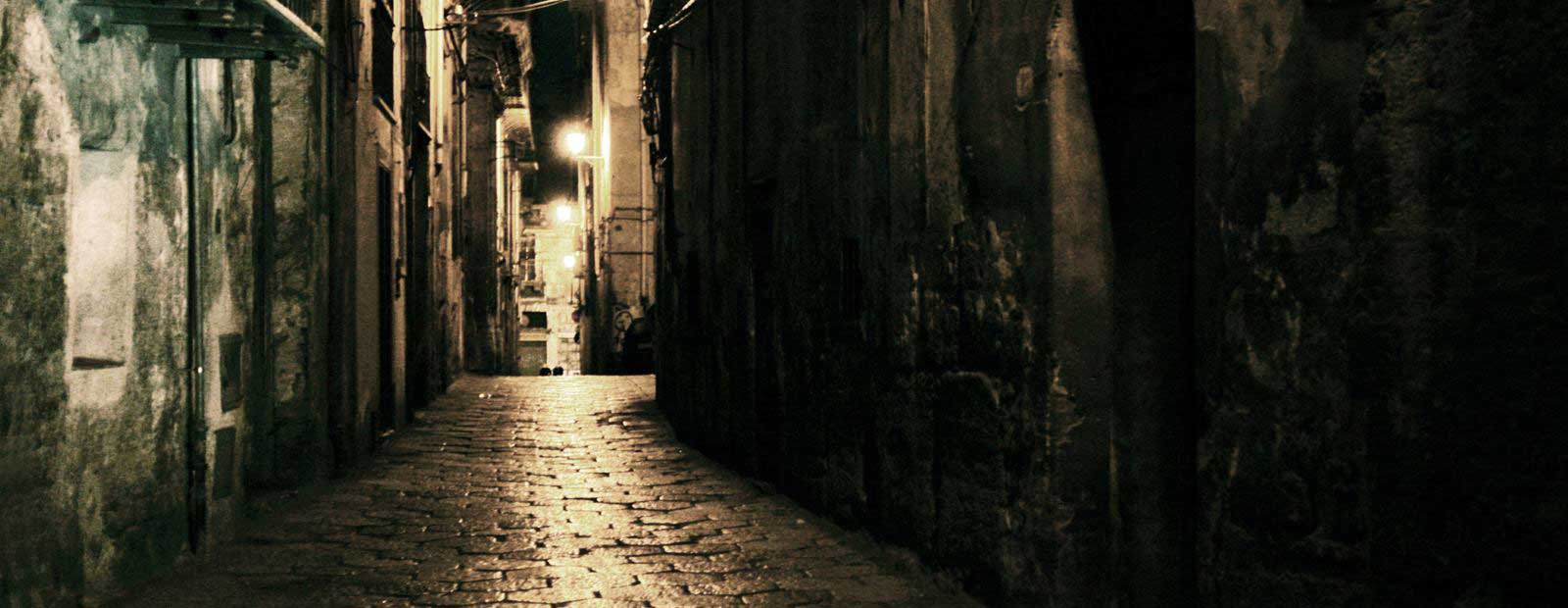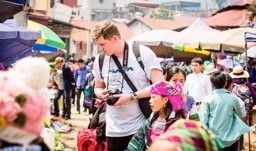
By Alex Hatton
Travel Writer26 Mar 2018 - 8 Minute Read
“Now we have very big problem.”
Yesaya hopped from foot to foot anxiously as he scratched at his bulbous white beard. His eyes darted through the jungle as though some unseen assailant might burst through the trees at any moment.
It was a fair assumption to make. We’d just been badly shaken up.
It happened right after Yesaya – the local guide I was traveling with through remote West Papua – realized the third member of our group was missing. Almost immediately, seven naked men exploded out of the jungle, screeching to a stop in front of us. Their skin was streaked with black war paint, so that the whites of their eyes seemed to glow. Their hands clutched bows and spears three times my height. One of them stared at me in disbelief as the apparent leader of the group exchanged heated words with Yesaya.
Suddenly, the party took off past us, running effortlessly along the tree roots. Yesaya gazed ruefully after them.
It was just the two of us again – the wide-eyed youth Yasaya referred to only as his “helper” was nowhere to be seen. Now Yesaya explained, “My friend. He from Yali tribe. These men are at war with the Yalis. If they find him, they kill him. Then, if they prove he was with us, they come back and kill me. Then maybe they kill you, too.” His voice – normally so bright and cheerful – had grown serious. My skin began to crawl. Before I could respond, he bolted into the jungle.
I lurched into a run, struggling to keep up. It wasn’t easy. I was already exhausted. We had been traveling since sunrise, and now the sky was darkening.
Earlier in the day, Yesaya had offered to take me on a shortcut that would turn two days of travel into one. Eager to get as far off the beaten track as I could, I had agreed. What ensued was a four-hour ascent through 800 meters of vertical jungle. My hands were raw and bloody from grabbing at vegetation – my heavy backpack rolled this way and that, throwing me off balance. Even Yesaya and his helper were gasping for breath (yet still somehow managing to laugh). I later found out Yesaya had only taken this route four times before, despite having lived in the Baliem Valley his entire life.



I was here on something of a whim. Less than two weeks earlier, while in Bali, I had felt the sudden urge to declare to the entire hostel my intention to set forth for West Papua. I received a mixture of high fives, applause, and the odd “far out, man!”.
What had inspired me? There were several reasons. First, I was more than a little drunk. Second, it seemed like a great way to annoy my brother Will by travelling further east than he had. But the main reason was this: All my life, whenever I have heard the word Papua, it was spoken with a tone of mystery and awe – and quite often, fear.
I like fear. I love awe. I am obsessed with mystery. I had to go.
As I spent the next 10 days poring through the somewhat limited information I could find on Papua, one place kept being mentioned again and again. "If you are going to Papua, you have to see the Baliem Valley. A cultural and landscape sensory overload." The thickly forested, mountainous terrain has so isolated the indigenous tribes that many have developed entirely unique languages and customs. The landscapes are like something from the age of the dinosaurs, home to giant crocodiles and rumoured to house even stranger creatures, like the Ropen, a giant fluorescent bat. As for the people, they’re as tough, adaptable, and awake as they were when man first came into being.
And so, with that in mind and little money to my name, I resolved to trek through the Baliem Valley for a week.

When Yesaya, his helper, and I finally completed that punishing first climb on our shortcut through the valley, the view confirmed all I had read and heard. Below us was a dense sprawl of vibrant green as far as the eye could see, a great, tumbling river slicing through it like a watery scar. We pressed on, hacking our way through the jungle until what little patches of sky we could make out through the canopy were a crimson red. That was when we realized that Yesaya’s helper had disappeared.
Now we were both running for our lives. Branches clawed at us as we struggled through undergrowth, half tripping over roots. We crashed into and across the river, wading up to our hips in the icy water and then scrambling up the muddy ditch on the other side.
The trees abruptly melted away as we entered a clearing. Ahead of us rose a small, grassy hill. It was bare of trees, and I thought I could see a trail of smoke lazily spiraling towards the sky from its top.
Whoops and cries echoed in the jungle behind us. “Go, go, go!” bellowed Yesaya as he sprinted up the side of the mound. Wheezing like an 80-year-old man, I forced myself into another run. We heard the calls again, even closer – high pitched yips and trilling whoops, almost playful in their nature, but sinister, too.
I knew I would either be caught or I wouldn’t. This simplicity was almost a relief – all I had to think about was running.
The whole situation seemed unreal, as if I was watching a movie through someone else’s eyes. I knew I would either be caught or I wouldn’t. This simplicity was almost a relief – all I had to think about was running.
We finally reached the top, and then I did collapse, first onto my knees and then my hands. I heard a voice. “Wah! Wah, wah, wah, wah, wah!” A pair of bare feet appeared on the ground next to me, and then I was surrounded by them. I looked up to see children, old people, young adults, and dogs staring at me in fascination. Their hands stretched out to me as they repeated, “Wah!” I knew that word – it meant: “welcome.”
We had made it to safe territory. The top of the hill was ringed by a semi-circle of small, thatched huts. Yesaya was laughing as he embraced an old friend.
His helper appeared some 30 minutes later, soaking wet. Yesaya spoke to him and told me what had happened. The young lad had somehow sensed the tribesmen coming towards us, and slipped back, swimming though the stronger currents of the river to avoid crossing their path.
He must have known he was risking his life to join our trek, but did so wordlessly, all for extra income to support his family.
Despite the nerve-wracking experience we had, I was amazed by the warm and friendly nature of Papuans. They are not only hands-down some of the most tenacious and badass people I have ever met, living in tranquil harmony with an unforgiving environment, but they are also welcoming and full of laughter. Had I possessed more money and equipment I would have loved to keep going, delving deeper into the mysteries of this place. Some day, I'm going back to do just that.
Editor's note: We obviously admire Alex’s adventurous spirit. We love independent travel and exciting travel stories. Are we suggesting you go to West Papua? It depends: check your government travel advisory before you commit.
Listen to the World Nomads Travel Podcast: Indonesia
Hear more from the author, plus the best surf breaks and tips on traveling solo.
Discover similar stories in
fear
Travel Writer
Alex Hatton has explored West, Central, and South East Asia and beyond, tumbling and bumbling, rumbling and fumbling as he goes.




No Comments